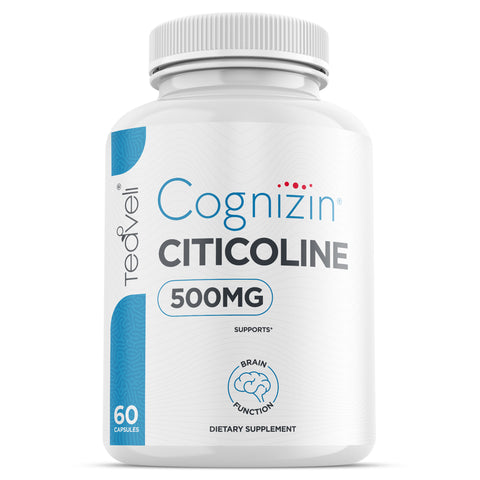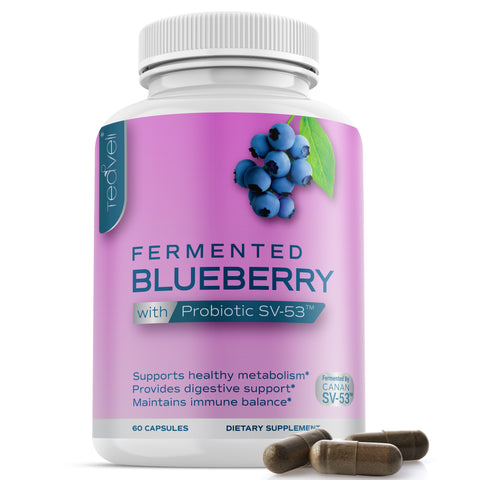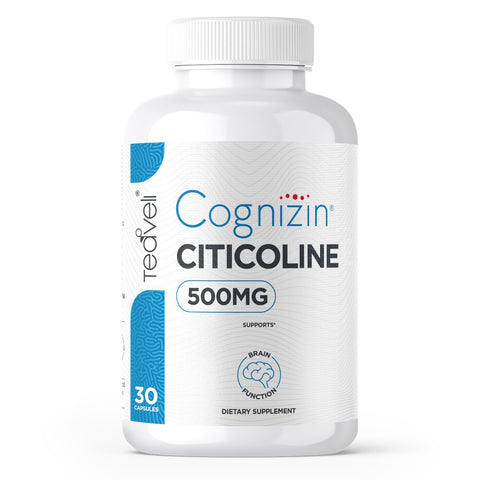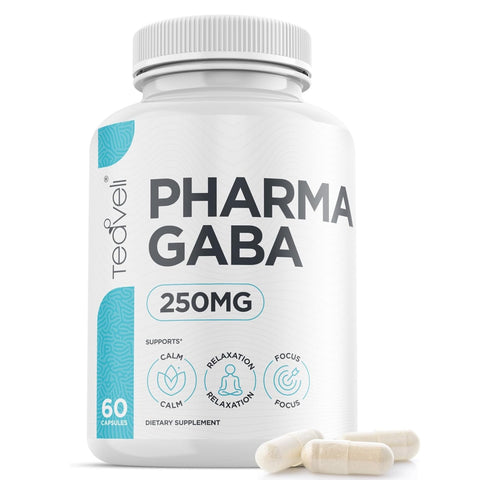Best Natural Sleep Aids Without Melatonin

Why Some Snooze Naturally?
Peter Attia describes good sleep as a performance-enhancing drug.Rest, relaxation, and sleep have become of utmost importance in the hustle and bustle of everyday life. The quest for 7.5-8.5 hours of peaceful nighttime sleep has become a paramount concern for many, as getting significantly less or more sleep will eventually lead to health problems. Poor sleep can lead to metabolic dysfunction, including Type II Diabetes. It can wreak havoc with the body’s hormonal balance.
However, good sleep is defined not only in terms of quantity but also quality. It supports cognitive function, brain health and memory. Sleep is when our brain detoxes. While melatonin is a popular sleep aid, it's not the only slumber buddy in town. Many folks opt for natural alternatives, and for good reason. First, melatonin often gets judged for its synthetic origins. Though our bodies naturally produce this sleep hormone, commercially available melatonin is usually lab-made. This can raise concerns about potential long-term effects and quality control, and studies show how melatonin has adverse cardiovascular, endocrinal and psychiatric effects1(Tuft et al., 2023). Let us explore sleep aids other than melatonin that address not just sleep but also underlying anxieties and imbalances that can disrupt slumber.
Tips for a Good Night’s Rest
Natural sleep aids often harmonise with our body's natural sleep-wake cycle. Unlike a quick melatonin pop, these lifestyle tweaks focus on establishing healthy sleep patterns for the long haul.
- A warm milk ritual before bed isn't just cozy. Milk contains tryptophan, a precursor to melatonin, the sleep hormone. Teaveli’s Golden Milk, with Vitamin D3 and K2, supports a restful sleep and balanced inflammatory response.
- Yoga Nidra - Dr. Andrew Huberman, a renowned neuroscientist, recommends yoga Nidra, which brings about a profound state of relaxation that helps with sleep.
Natural Herbs that Help with Sleep
Nature offers a gentle alternative to sleep aids. Let's explore four slumber superstars:
- Apigenin: Extracted from fruits and vegetables, apigenin is a natural flavonoid that assists sleep. Apigenin works by calming brain activity, easing tension, and promoting deeper sleep. Apigenin has a low absorption rate when consumed. Enter Teaveli's apigenin supplement, hand-in-hand with its power-up partner, resveratrol. Resveratrol, another natural wonder, acts as a "delivery shuttle," escorting apigenin past absorption barriers and directly to your brain. This means Teaveli's apigenin unlocks its full potential, turning whispers of sleep into a soothing lullaby. Studies show it can improve sleep quality and duration, boost relaxation, and combat anxiety. Dr. Andrew Huberman recommends a dose of 50mg of apigenin for effective sleep aid.

- GABA: GABA, a brain chemical naturally produced by your body, acts like a dimmer switch for your nervous system. When stress levels increase, GABA steps in, lowering the intensity and inviting peace. It's nature's built-in relaxation tool, but its effectiveness is limited by low bioavailability, like apigenin. Here's where Teaveli's pharmaGABA shines. PharmaGABA is specially formulated to bypass absorption obstacles and reach your brain more readily than regular GABA. This means faster relaxation, reduced anxiety, and a smoother transition into sleep. Studies suggest pharmaGABA can significantly improve sleep quality, promote deeper sleep stages, and leave you feeling refreshed and revitalised in the morning. By choosing Teaveli's apigenin and pharmaGABA, you're not just opting for natural sleep aids but a bio-hacked upgrade.
Apigenin and PharmaGABA offer sleep benefits using different pathways; hence, you can take these supplements together for relaxation and sleep as a natural sleep aid you can take every night.
- Ashwagandha: Known as the "adaptogen king," this ancient herb helps manage stress and is a significant sleep thief. Teaveli’s golden milk includes KSM66 Ashwagandha, the world's most researched and patented form of Ashwagandha, for maximum potency.
- L-theanine - Found in green and black teas, it promotes relaxation and reduces anxiety, creating a peaceful stage for sleep. Studies suggest it can have anxiolytic effects, which are required to initiate high-quality sleep2 (Rao et al., 2015).
Conclusion
Studies show that as people grow older, the hours of sleep we get reduce dramatically. Due to the lack of sleep, ailments and illnesses manifest in the body, leading to health complications over time. So, as we grow older, we must get a whole night’s rest every day to give our body enough time to energise and replenish its resources. If you are looking for alternatives to melatonin, consider using natural supplements and sleep techniques that do not interfere with other medications. Please consult your doctor before taking any supplements, especially if you already are on medication.
Ditch the melatonin pill and discover the wonders of Mother Nature's sleep arsenal. From golden milk before bed to yoga nidra, natural sleep aids tackle not just sleep but underlying imbalances. And if you seek a gentle nudge, explore herbs like apigenin, as recommended by Dr Andrew Hubermann and the naturally fermented pharmaGABA to unlock their full potential. Remember, good sleep isn't a quick fix; it's a lifestyle journey. Embrace natural solutions, prioritise relaxation, and unlock the sweet dreams in the land of slumber.
References:
1 - Tuft, C., Matar, E., Schrire, Z. M., Grunstein, R. R., Yee, B. J., & Hoyos, C. M. (2023). Current Insights into the Risks of Using Melatonin as a Treatment for Sleep Disorders in Older Adults. Clinical Interventions in Aging, Volume 18, 49–59. https://doi.org/10.2147/cia.s361519
2 - Rao, T. P., Ozeki, M., & Juneja, L. R. (2015). In search of a safe natural sleep aid. Journal of the American College of Nutrition, 34(5), 436–447. https://doi.org/10.1080/07315724.2014.926153









